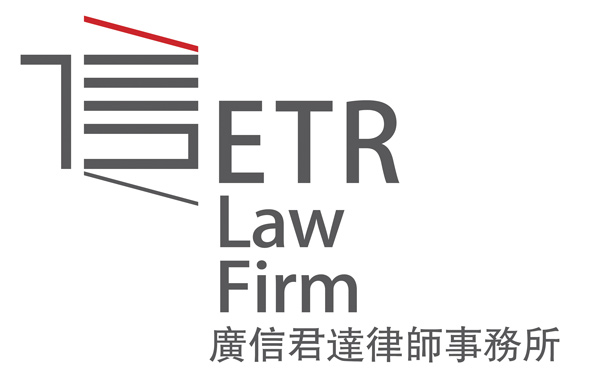Disputes over investment and financing of listed companies, due to the large amounts and the complex legal issues involved, are subject to heated debate once litigated, and the final judgment can have wide ramifications for the entire financial market. This article looks at one such example, analysing the effectiveness of agreements on guaranteed minimum income for private placements.
Definition
Non-public sales of shares by listed companies to specific targets, or private placements, are a major channel for listed companies to raise capital. To win high-quality capital injection and so lay a solid foundation for long-term development, listed companies often promise a guaranteed minimum income (the “minimum commitment”) to their target investors.
Effectiveness
In a sponsor representative training session in Beijing on 28 October 2015, the China Securities Regulatory Commission expressly pointed out that for investors determined by the board of directors concerning asset management plans or wealth management products, the final contributors – which shall not exceed 200 – should be disclosed when formulating the preliminary plan, which prevents any public offering in disguised form.

Senior partner
ETR Law Firm
During the subsequent lock-up period, clients or partners may not transfer their shares of the product or withdraw from the partnership. The target of issuance should include the ultimate holders, which cannot be changed after the disclosure of the preliminary plan.
In regular offerings, the listed company will issue a “preliminary plan for non-public offering of shares” and an “announcement on matters related to non-public offering of shares”. Subsequently, it will receive an official reply from the CSRC, which expressly requires that “the offering of shares shall be carried out in strict accordance with the application documents submitted to the CSRC”. The purpose of the CSRC guidance is to strengthen the regulation on security issuance by means of look-through verification and full disclosure by issuers, so as to avoid any incidents detrimental to social and public interests or endangering financial security.
Since the introduction of the CSRC opinion, without contravening the above regulatory purposes or approval procedures, if a third-party company, as the ultimate investor in the non-public offering, changes the shareholder of a designated target after the adoption of the preliminary plan and privately signs a profit guarantee agreement with the listed company, is such an agreement effective? The author believes that the entering into of the profit guarantee agreement, being a conduct of market, should be valid as part of the parties’ autonomy of will, so long as it does not violate any mandatory provisions under the laws or administrative regulations, nor harm the social and public interest or the security of the financial market. In addition, the CSRC opinion only emphasises the look-through review of specific targets, while the legitimacy of shareholders behind such targets are generally recognised, as long as the flow of funds is clear and no “shadow shareholder” is formed through shareholding entrustment or multi-layer nesting, as an attempt to bypass the CSRC’s review and approval procedures for non-public offering of shares of listed companies.
Standout case
In September 2015, Company A, a trust company, and its wholly owned subsidiary Company B signed a profit guarantee agreement with Zhong, under which Company A, as the limited partner of Company C, a partnership, would make a capital contribution of RMB90 million as the subscription amount set out under the conditional share subscription agreement signed between Company C and Company D, a chemical company, but Company B actually held Company C’s partnership shares. From the date of investment to the expiration of the lock-up period of this non-public offering, Companies A and B should obtain an investment income of no less than 20% of the principal of trust investment, otherwise Zhong would have to pay compensation.
Subsequently, Company B decided to withdraw from the partnership, leaving Company A to establish and represent the single fund trust to invest in the partnership shares of Company B. In March 2021, Zhong initiated arbitration at the local arbitration commission on the grounds that Company A’s purchase of the transferred partnership share violated the provisions of CSRC on “look-through review of specific targets in non-public offering of shares”, requesting to invalidate the profit guarantee agreement. The points of dispute in this case are as follows:
- Did Company A’s purchase of the transferred partnership shares violate the regulatory purpose of the CSRC?
- Should the profit guarantee agreement be invalid as a result?
Case analysis
In this case, the profit guarantee agreement involved three parties. As Company A had not yet determined the specific investment plan when signing the agreement, both Companies A and B were disclosed, but a final decision was made that only Company A would make the capital contribution and hold shares. This is not a case of pre-IPO or low-price shareholding, and the flow of funds is clear, therefore Company A did not violate the regulatory purpose of the CSRC.
The profit guarantee agreement was entered into privately by Company A, Company B and Zhong to guarantee profit, making it essentially a joint assessment and sharing of investment risks and returns between shareholders and investors of a listed company, an exertion of the parties’ autonomy of will.
Moreover, the minimum commitment of the shareholder to investors did not harm the interests of the company or creditors, nor did it significantly increase the bond market risks, disrupt the financial market, or violate any prohibitive rules under the laws or administrative regulations. Therefore, the profit guarantee agreement is legally effective and should be strictly implemented.
“Substance over form” is a valuable principle when handling such cases, which should not be reviewed in a formalised, simplified manner, as excessive interference with market behaviour may in turn lead to destabilisation.
Liu Shanqiao is a senior partner at ETR Law Firm
10 & 29/F, Chow Tai Fook Finance Centre
No. 6 Zhujiang Dong Road, Tianhe District
Guangzhou 510623, China
510623
Tel: +86 20 3718 1333
Fax: +86 20 3718 1388
Email:






















